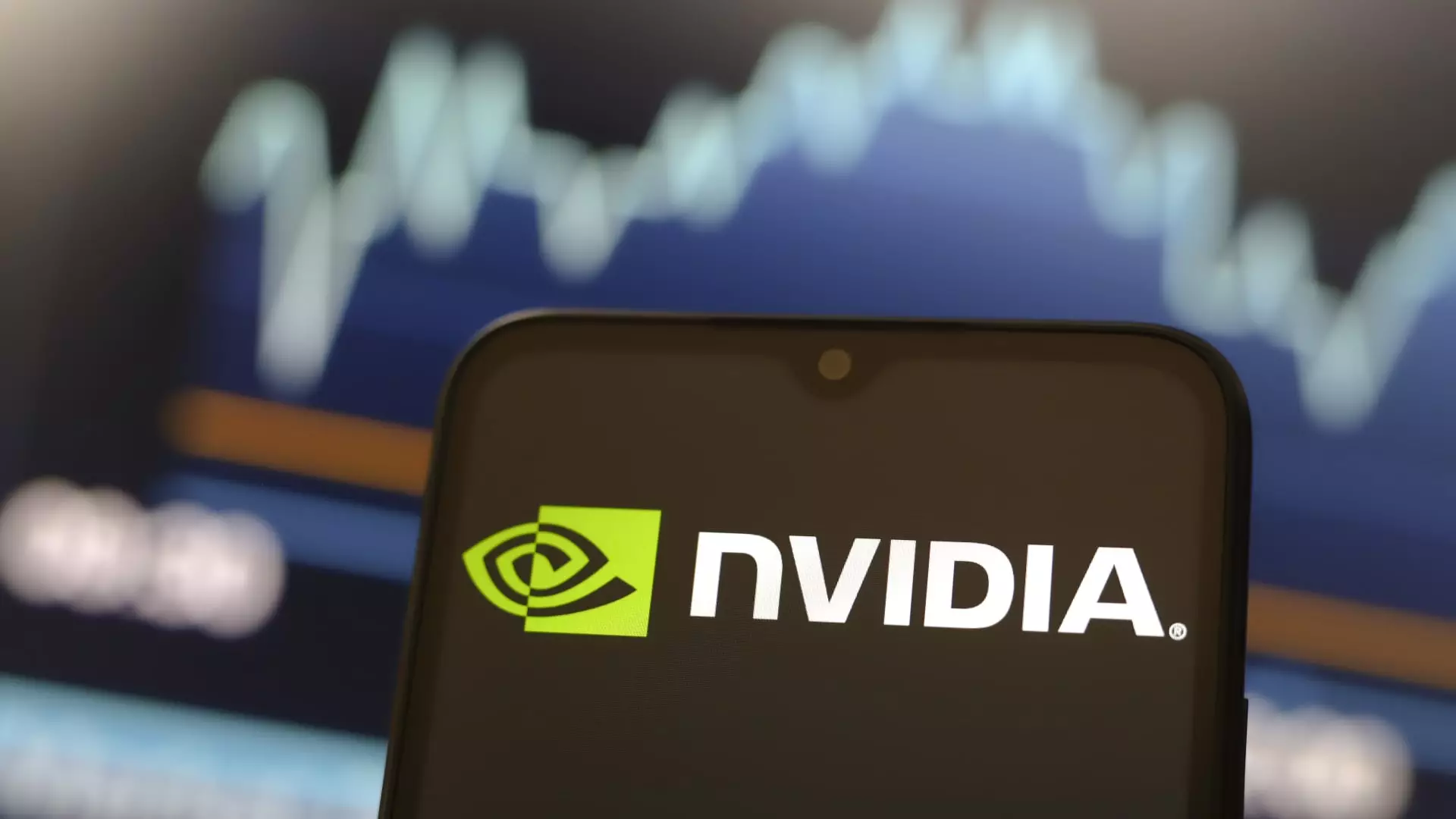As the global economy increasingly interweaves with technological advancements, market dynamics resembling a roller coaster highlight the volatility investors face in the tech sector. Recent midday trading demonstrated a stark reaction from Wall Street, reflecting the unease among investors regarding the progress of artificial intelligence (AI) and its implications for leading semiconductor firms. This article delves into the intricate shifts in the market, examining the performance of key players and the underlying factors driving these developments.
Nvidia, a titan in the chip manufacturing industry, experienced a staggering decline of nearly 17% in response to concerns surrounding a language model launched by Chinese startup DeepSeek. This plunge marked one of Nvidia’s most dramatic downturns since March 2020, raising critical questions about the viability of investments within the AI domain. Nvidia’s troubles extended beyond its own stock, as fellow semiconductor manufacturers failed to escape the wave of pessimism permeating the market. Broadcom mirrored Nvidia’s fate with a sharp more than 17% drop, while Micron followed suit, falling over 11%. Even Advanced Micro Devices (AMD), once a robust competitor, succumbed to the bearish sentiment, sliding more than 6%.
The stringent sell-off in the semiconductor sector, including a nearly 10% decline in the VanEck Semiconductor ETF, underscored a potential paradigm shift in investment perceptions. As AI continues to evolve, the notion of its profitability is now being scrutinized, leaving investors questioning the return on their substantial commitments.
Beyond the semiconductor realm, major technology companies like Microsoft and Oracle also bore the brunt of investor skepticism. While Microsoft plans to invest a substantial $80 billion in AI data centers within the fiscal year 2025, the announcement did little to bolster confidence among shareholders. Their stock fell more than 2%, reflecting a broader sentiment of uncertainty about whether these extensive investments will result in anticipated returns.
Similarly, Oracle experienced a significant decline, dropping over 13% — an alarming statistic for a company closely associated with advancing AI infrastructure projects like Stargate, recently endorsed by governmental figures. The cumulative effect of these losses among tech giants signifies a larger trend of investor caution, especially regarding their long-term strategies in an unpredictable marketplace.
The fallout extended to energy companies involved in AI data center development, where stocks like Constellation Energy and Vistra suffered declines surpassing 20% and 28%, respectively. The struggles did not end there; General Electric’s Vernova and Talen Energy also plummeted over 21%. The downtrend for these power companies illustrates the interdependency of emerging technologies and the energy sector, showcasing how complications in one area can dramatically ripple through interconnected industries.
Cryptocurrency-related stocks were not insulated from the repercussions of the tech stock downturn, as the pressures became evident from the broader sell-off. Coinbase tumbled over 6%, while MicroStrategy experienced a relatively smaller drop of approximately 1%. However, it was the bitcoin miners specifically that faced pronounced challenges, with Core Scientific and TeraWulf witnessing declines nearing 30%. The aggressive sell-off in cryptocurrency highlights the intricate relationship between digital currencies and technology, as the downturn in mainstream tech also tends to erode confidence in associated assets.
Despite the gloom pervading the market, some companies managed to buck the trend. Telecommunications giant AT&T reported promising fourth-quarter earnings that surpassed analysts’ expectations, boosting its stock by over 6%. Similarly, SoFi Technologies provided an unexpected downturn despite beating earnings and revenue predictions, as a more cautious outlook for the upcoming quarter overwhelmed initial positive sentiments.
Travel + Leisure benefitted from a bullish upgrade from Bank of America, with the stock jumping over 2%—proving that resilience exists even amid market turmoil. Titan Machinery and Exelixis also saw advancements following favorable evaluations from investment firms, encapsulating that in a volatile environment, opportunities still arise for astute investors.
The recent market movements highlight a crossroads for tech stocks, particularly those intertwined with AI advancements and the semiconductor industry. The cascading effects of emerging trends in AI necessitate investors to recalibrate their strategies carefully while staying vigilant in the ever-changing landscape of technology-driven investments.

